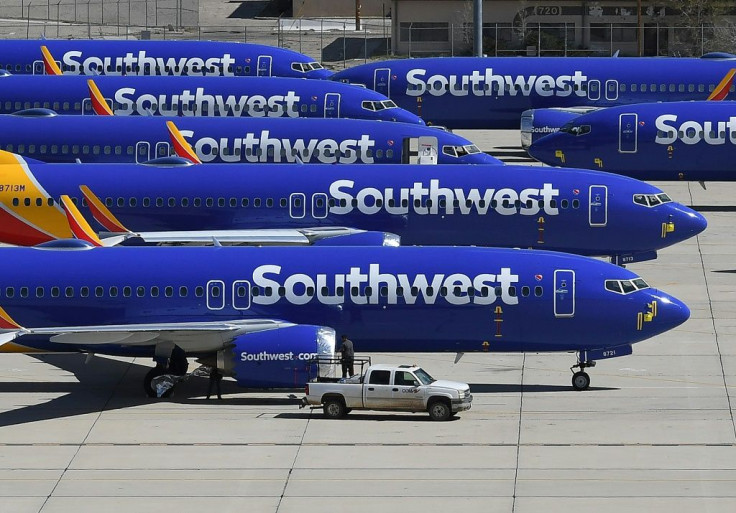Layoff Worries Cast Shadow Over Holidays For Those Employed At Boeing's Suppliers

KEY POINTS
- Boeing suspended the production of the 737 Max on Monday
- 12,000+ Boeing employees will be safe from layoffs.
- 1,000+ suppliers that make parts for the plane will feel the ripple effect
What started out only a month ago as speculation has quickly shaped into a very real concern for many working in aircraft-related manufacturing in the United States.
On Monday, Boeing announced that it will suspend production of the 737 Max airliner, with no clear timeline on the FAA recertifying the aircraft as ready to fly again. The plane was grounded the world over after two crashes that killed 346 people. Reports have faulted the cozy relationship between Boeing and the FAA that led to the plane being certified to fly without addressing critical flaws in software despite internal warnings in a Boeing report.
The decision to halt the production of the aircraft has sent shockwaves through the aviation community, with worries of mass layoffs clouding the holiday mood in many families. Boeing has allayed concerns of layoffs because of the production halt, saying it will find other projects for employees to work on. That means Boeing's 12,000 employees are safe, at least for the time being. But what about its suppliers and the people they employ?
A report by The Philadelphia Inquirer talked of how the decision to halt the 737 Max production will ripple across the production chains of local manufacturers like Ametek, DuPont Co., Southco, TE Connectivity and Triumph Group among others.
Most of Boeing's bigger suppliers also deal with other companies including Airbus, so they may be able to pull through this crisis. But there are many smaller suppliers that no one is talking about. Those employed with these subcontractors of Boeing's direct suppliers are going to be the ones who will feel the impact of the production halt first.
While there have not been any direct layoffs as of yet, workers can't help but wonder if they are coming. "I have been submitting resumes and making calls just to be on the safe side," said a person working with one of Boeing's suppliers in Wichita, Kansas.
The mechanical engineer of five years, who did not wish to be named added, "I expect that by the end of the first quarter of the next year this place will be closed. We built our livelihood on building their parts, and because they cut corners we may not be able to feed our children. That seems about right, and we can't say anything out loud because of their legal teams."
Johnathan Renskers (name changed to protect identity), a machine shop worker from the Portland area and father of three, said suppliers like the company that employs him will not be paid by Boeing under their current contracts.
His company has metal and parts sitting on hand that cannot be put to use now, and do not have the space to store them. No parts-filling order means no paychecks. "I've got enough coming to me through the end of the month to make things work but by mid-January, I'll be in danger of losing things," he said.
Boeing has stated that it will work with its suppliers to maintain a supply of parts as it expects to resume production. It is important for Boeing to keep the lifelines open to the suppliers. If the suppliers go out of business, Boeing would find it difficult to ramp up production when the 737 Max gets recertified.
Still, the company, which has taken a $4.9 billion charge in its second-quarter over the grounding of the 737 Max and seen revenue from the program dry up, is looking to save money on monthly expenditures which currently total about $2 billion. Even if the supply chain is cut in half, a figure bandied about in industry circles, Boeing will be burning through about $1 billion per month on planes that it can't sell yet.
How long that money will continue to flow will decide the fate of the bigger suppliers.
© Copyright IBTimes 2025. All rights reserved.






















